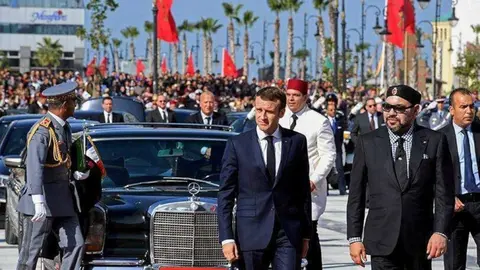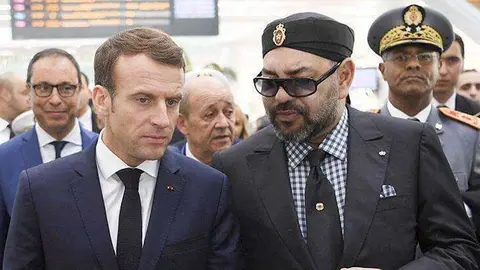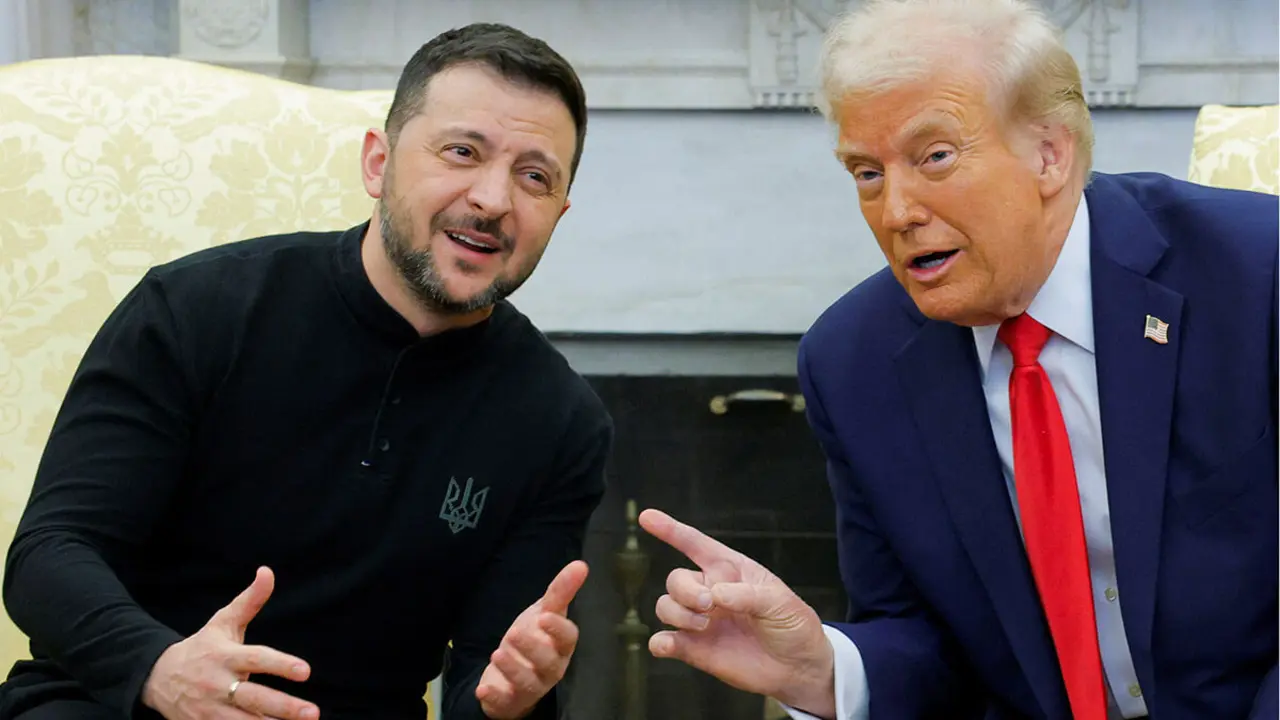The crisis between Morocco and France from the perspective of the French media

"How far will this go?" ,asks the Rabat correspondent of the French daily Le Monde, Frédéric Bobin, in view of the growing tension between Morocco and France. For months now, relations between the two countries - once great allies - have been strained. Cordiality and understanding have given way to tension and estrangement, which seems to increase with each passing day.
This diplomatic crisis has worsened especially after the earthquake that shook the High Atlas last September, a catastrophe that, far from uniting the two countries, has deepened the rift that has been driving Rabat and Paris apart for months. According to Le Monde, the earthquake "logically should have calmed things down". However, the opposite has happened.
In the aftermath of the powerful earthquake that caused thousands of deaths and injuries, several French media outlets began to question the measures taken by the Moroccan authorities and to wonder whether the Kingdom could manage without France's help. Bobin echoes the response of the offended Moroccan press, which did not hesitate to label the former colony as paternalistic.
Similarly, the Moroccan media also criticised French President Emmanuel Macron's choice to address the Moroccans directly after the earthquake via his Twitter account, without using any official channel. "His clumsy video message was seen as a breach of protocol, defying the king," criticised the North African press.
For Moroccans, the monarch Mohammed VI "is a red line", argues Le Monde. To back up this argument, the correspondent in Rabat turns to a Moroccan psychoanalyst, Hicham Chamekh, who explains that "a process of emancipation is currently underway in Morocco".

"Moroccans want to move away from a relationship with France marked by a certain paternalism and a position of domination, even infantilisation", says Chamekh. This is also based on the treatment of the king's image in the French press, which many Moroccans find inappropriate and even hurtful.
"In France there is a misunderstanding of the links between Moroccans and the king. The monarchy is an institution perceived here as a resource, an entity that provides security. To offend the king is to offend all Moroccans", says Taoufiq Boudchiche, economist and diplomat.
For this reason, after French newspapers devoted articles to Mohammed VI that were perceived in the Kingdom as offensive, the Moroccan press has hit back, targeting Macron. "An eye for an eye, a tooth for a tooth", says the Parisian daily.

Morocco leaves behind its colonial image and emerges as an emerging regional potential
Another aspect that explains Morocco's stance towards France is, according to Le Monde, its new self-image, "that of an emerging regional power with a diplomacy without complexes". This new perception is based on Rabat's stance since the agreement with former US president Donald Trump in December 2020 by which Washington recognised the Moroccan ownership of Western Sahara in exchange for diplomatic normalisation between Morocco and Israel.
"Emboldened - sometimes to the point of arrogance - by US backing, Morocco has upped the ante vis-à-vis its other partners on the Saharawi issue. These partners - led by France - are being asked to formally validate Morocco's sovereignty over the territory that the pro-independence Polisario Front has disputed since 1975, with the support of Algiers", writes Bobin, who recalls that the Morocco of 2023 is very different from the one France had to face a decade ago.

In his article, the French journalist reviews the main problems that Franco-Moroccan relations have had to face, such as the visa crisis - which was perceived in Morocco as a real humiliation -, the European resolution against Rabat - which was seen as a low blow by Paris -, and the Pegasus case. All this has meant that the Kingdom currently has no ambassador in Paris, while the French representative in Rabat, Christophe Lecourtier, has yet to be received by Mohammed VI.
In this situation, to say that the crisis is deep "is an understatement", laments Bobin. However, it should be noted that this summer, thanks to a phone call between Mohammed VI and Macron, a rapprochement between the two countries came close, despite the poor personal relationship between the two leaders. At the time it was an ideal moment due to the stalemate in French-Algerian ties, another aspect that has distanced Paris from Rabat.
With the earthquake, however, tensions have risen and bilateral relations are dangerously close to the point of no return. So much so that Bobin wonders whether after the anti-French wave in West Africa Morocco will be "the next domino on the map".

Morocco and France must re-establish a climate of trust
On the other hand, in an editorial, the French daily stresses that "neither Rabat nor Paris have any interest in letting their bilateral relationship, marked for the past two years by bitterness and misunderstandings, deteriorate even further".
Le Monde recalls that in the past the two countries enjoyed "a model of post-colonial complicity, friendly even to excess". However, due to various diplomatic misunderstandings, ties have seriously deteriorated, to the point that the recent earthquake has increased tensions rather than lowered them, something that "speaks volumes about the depth of the unease", according to the newspaper.

"Rabat has rejected Paris's offer of aid, which is its absolute sovereign right but reflects a clear political mistrust," it stresses. Rabat only accepted aid from Spain, the United Kingdom, Qatar and the United Arab Emirates.
Le Monde ends its editorial by urging "a halt to the escalation of animosity". "As a legacy of history, the closeness of human, economic and cultural ties between France and Morocco requires a climate of trust to be re-established. Paris has a lot of work to do to move away from an often paternalistic attitude towards its former colonial possessions", it concludes.










